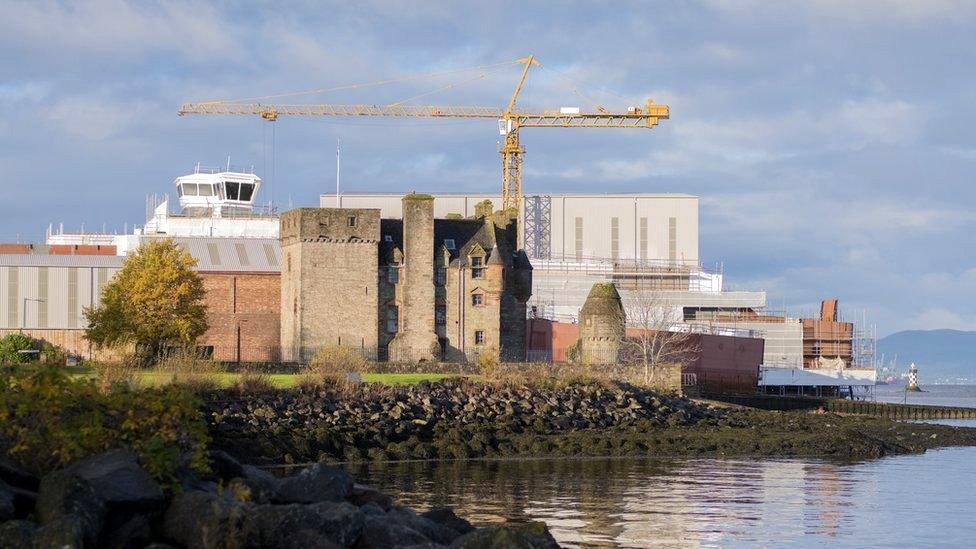Nationalised Ferguson shipyard to recruit 120 extra workers
- Published
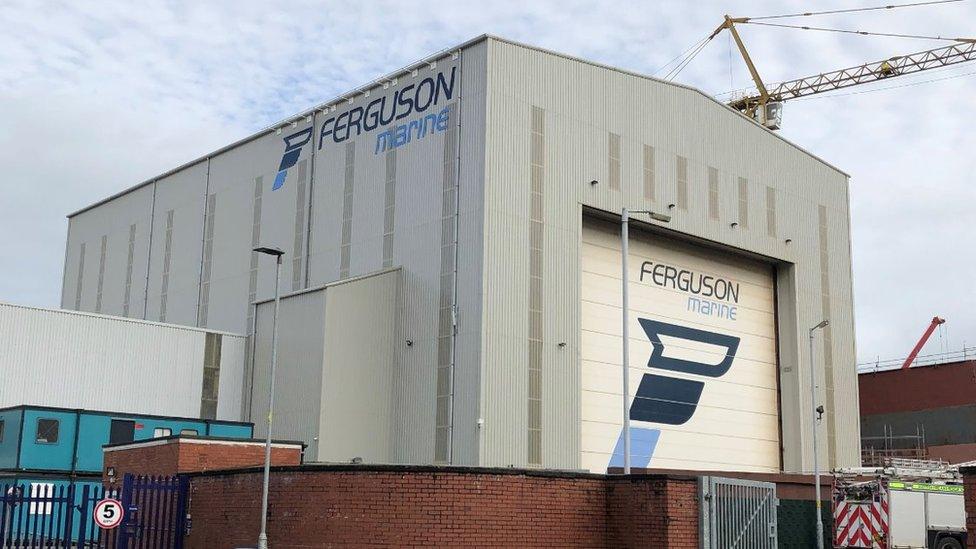
Ferguson is only looking for UK-based workers, partly because of Covid-19 restrictions
A nationalised shipyard working to complete two overdue and overbudget ferries is taking on 120 workers as it moves to seven day working.
Ferguson Marine in Port Glasgow said the extra staff - mostly pipe fitters and steel workers - would help "secure the long-term future of the shipyard".
They will be working on MV Glen Sannox and hull 802 for at least six months.
The yard went into administration in 2019 following controversy over the two ferries being built for CalMac.
The cost of the dual-fuel ships has risen to twice the £97m fixed price contract and delivery is four years late.
The yard, which is now government-owned, said it was "taking serious action" to speed up the delivery schedule.
The extra workers will mean the shipyard can be in production seven days a week during spring and summer and will bring total number of staff to more than 500.
Tim Hair, the "turnaround director" appointed by the Scottish government, said: "Last year was challenging, with disruption created by the pandemic, but we're confident we can increase momentum in 2021."
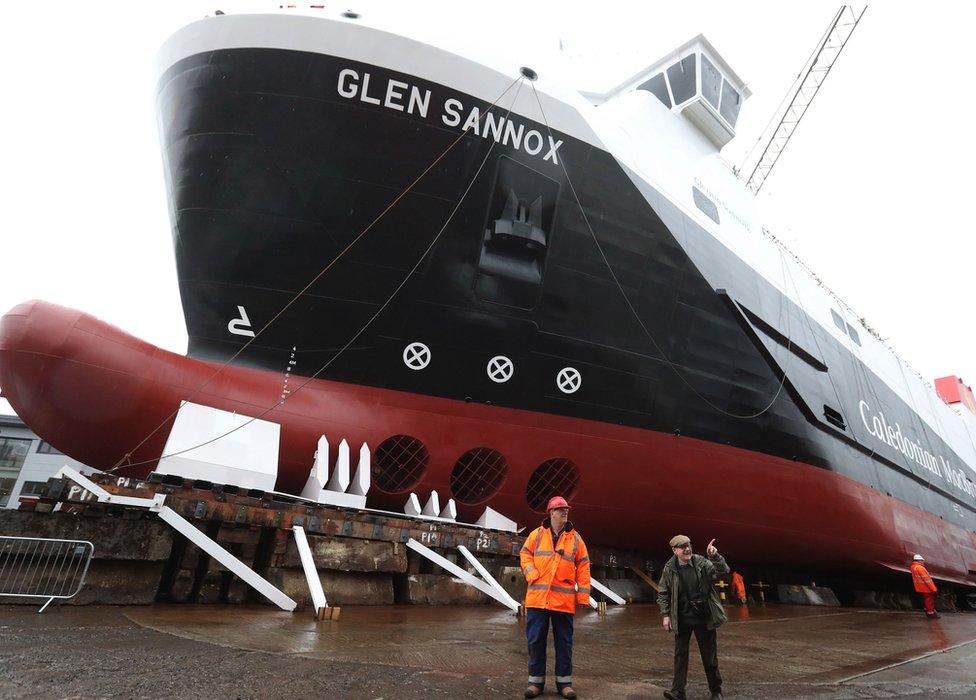
Ferguson went into administration following a dispute over the construction of two ferries under a £97m fixed price contract
Ferguson said it was only looking for UK-based workers at this stage because of the current Covid-19 restrictions and the need to start in mid-March.
Earlier this year there was controversy when it was reported that migrant workers from Eastern Europe , externalhad been employed at the yard by a sub-contractor.
In the past year, the yard has taken on more than 100 extra staff and reintroduced its apprentice programme, which recruited 25 young people.
Mr Hair added: "We are confident, despite many challenges, 2021 will be a pivotal year in securing the long-term future of the shipyard.
"We must do everything possible to deliver the dual fuel ferry programme, improve productivity, secure contracts for future vessels, and protect local jobs."
- Published1 January 2021

- Published5 February 2020
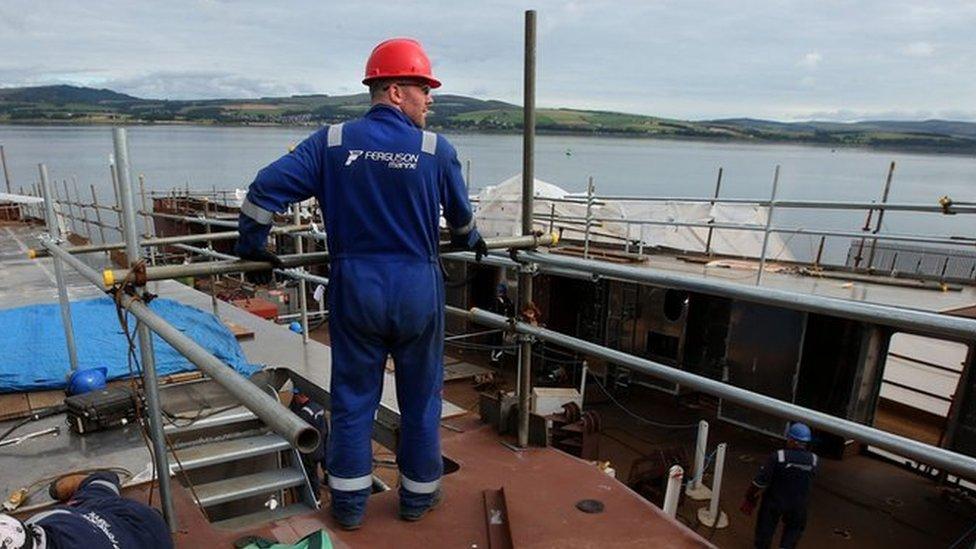
- Published18 December 2019
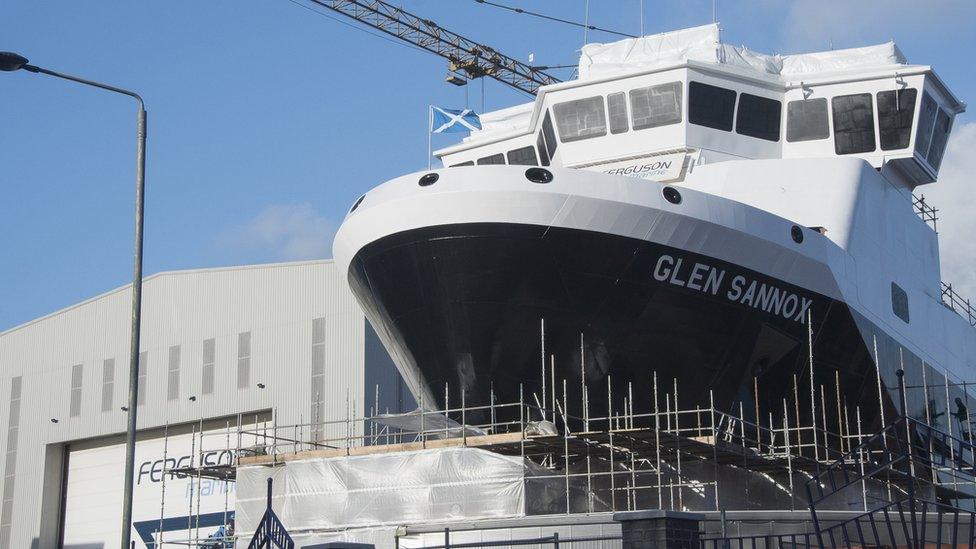
- Published2 December 2019
